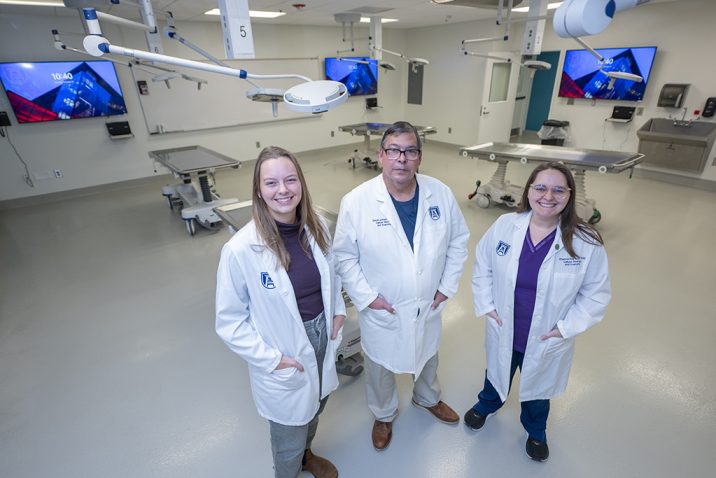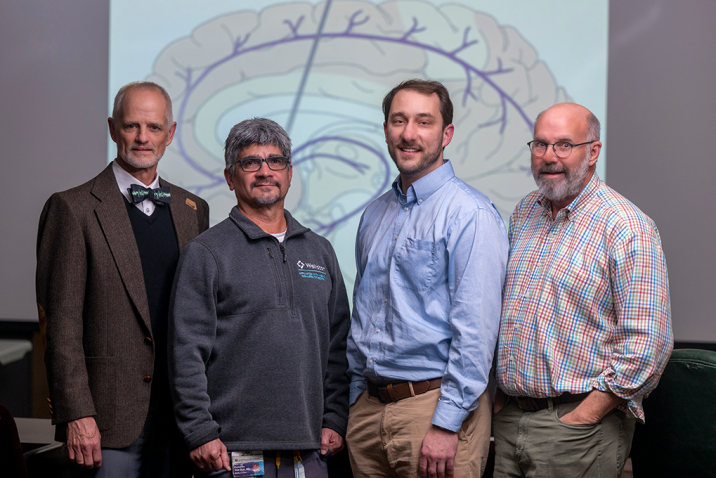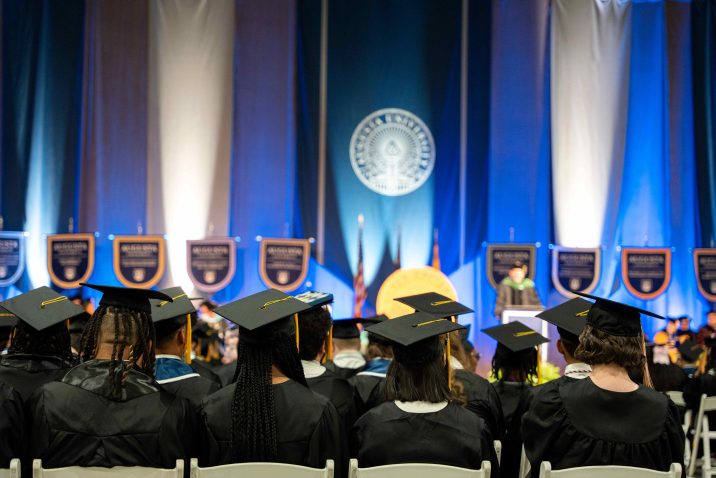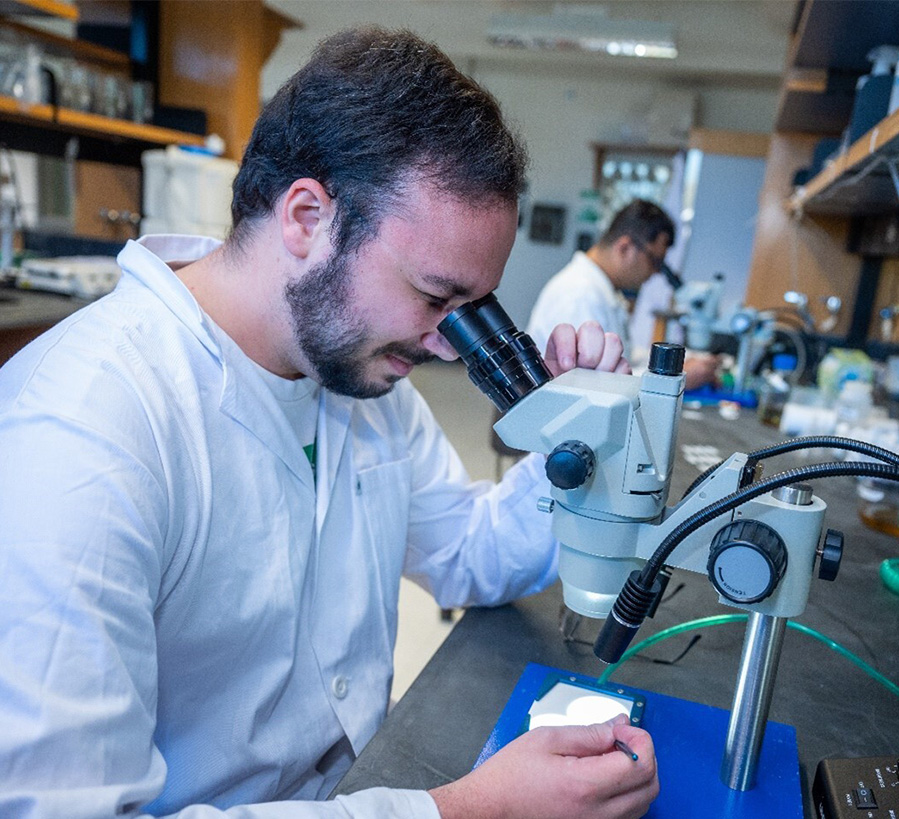Cellular Biology and Anatomy
With a PhD in Cellular Biology and Anatomy, you’ll be prepared for a career in research or academia. dical school faculty member.
Students in the Cellular Biology and Anatomy program develop a strong foundation in histology, embryology, neuroscience and gross anatomy while learning the latest research techniques.
By choosing to earn your doctorate in Cellular Biology and Anatomy from the Medical College of Georgia at Augusta University, you’ll work side-by-side with internationally recognized researchers while pursuing your own research interests.
Cellular Biology and Anatomy is for you if you consider yourself
Life-Changing
Life-Saving
Education
Want to learn more about the Cellular Biology and Anatomy program at Augusta University?
Request InfoWhat You'll Study
Coursework
Students in Augusta University’s Doctor of Philosophy in Cellular Biology and Anatomy program are admitted via a common admission process to the Biomedical Sciences PhD programs. After completing the first-year core coursework and laboratory rotation, students will choose a dissertation research mentor and enter the Cellular Biology and Anatomy program.
The average time to completion is five years of full-time, year-round study.
Curriculum | Admissions Criteria | Tuition and Fees | Application Deadlines



EXPLORE. EXCEL. EXPAND.
Graduate School Advantage
Augusta University's graduate programs are among the best in the nation – and the world – and our graduate students are our most valuable assets. To ensure that our students earn more than a degree, the Graduate School offers a range of opportunities so they can develop the leadership, communication and personal skills needed for a rewarding life and academic, research or professional career.
See what the Graduate School has to offer »
About the Graduate SchoolExperience-based Education
Outside the Classroom
Students in Cellular Biology and Anatomy program part of a highly collaborative learning environment, with access to internationally recognized researchers and clinicians who are advancing patient care and outcomes.
Versatile Degree
With a doctorate in Cellular Biology and Anatomy, graduates have a variety of employment options, from academia to research.
Rich History
As the state’s only public medical school, MCG is recognized as Georgia’s leading provider of physicians and receives nearly $64 million in funding from the National Institutes of Health.
Dynamic Department
The Department of Cellular Biology and Anatomy hosts a variety of lectures and discussions, helping students develop critical reading skills while learning about important cellular biology topics.
Accomplished Faculty
Cellular Biology and Anatomy faculty are recognized educators, researchers and clinical experts who are committed to providing innovative opportunities for student learning and professional growth.
Your Future
Career Options
According to the U.S. Bureau of Labor Statistics, the median pay for a medical scientist is $100,890 per year. Job growth is expected to rise much faster than the average.
Profiles
Student Stories
I chose CBA because it made me feel at home when I’m too far away from home. The collaborative environment and kindness of the people in this department are strengthening me throughout my PhD journey.
Dima Alhamad
Do not be afraid to ask questions! Some of the best conversations happen by asking a question no matter how simple it may be. I am always learning something new in different disciplines whether from our journal clubs or seminars. I am always starting conversations with my friends by saying 'Did you know?"
Phylicia Allen
Admissions Criteria at a Glance
GPA: Overall GPA of 3.0 on a 4.0 scale at the Baccalaureate level calculated on all undergraduate work.
Degree Requirement: Minimum of a Bachelor’s degree or equivalent from an accredited college or university.
Transcripts: Official transcripts are required from all universities and colleges ever attended. Unofficial transcripts from US colleges and universities can be used in the admissions review process in lieu of official transcripts for this program.
Standardized Test Requirements: None are required for this program.
Letters of Recommendation: Recommendations from three individuals must be submitted through the application portal.
Resume: Applicants must submit a resume or curriculum vitae within the application portal.
Research Experience: Research experience is required for admission. Within the application, you will be prompted to provide both personal and research statements. Please consult the application for the full statement prompts.
International Students: Please review the verification process for international transcripts and the english proficiency requirement.
Tuition & Fees Estimate
$4,801*
Estimated total
Full-time / In-State / Per Semester
$401
Tuition Per Hour
$675
Mandatory Fees
View Detailed Program Tuition
*Tuition & Fees listed here are for in-state students enrolling in the university for Fall 2025 semester.
Detailed Program Tuition InformationApplication Deadlines
Fall '26 International Deadline**
- December 1, 2025
Fall '26 Deadline
- December 1, 2025 - extended to December 15, 2025
Early submission of all application materials is strongly advised.
All required application materials and documents must be received in order for an application to be considered complete and before an admission decision can be made. The program does not accept applications after the published application deadline, however the program will continue to accept application materials up to 2 weeks after the application deadline.

Why Augusta?
A dynamic, collaborative department provides numerous opportunities for additional learning through lectureships, journal clubs and interactions with faculty members and visiting researchers.
Research facilities with state-of-the-art equipment enable students to pursue their research efficiently and conveniently.
As one of Georgia’s four research universities, Augusta University provides unparalleled access to groundbreaking researchers and the projects they’re involved with.

Families leave lasting contribution to medical science with body donations
Families leave lasting contribution to medical science with body donations
MCG starts human trials on deep brain stimulation for Alzheimer’s patients
MCG starts human trials on deep brain stimulation for Alzheimer’s patients

